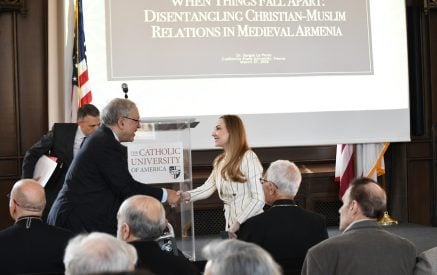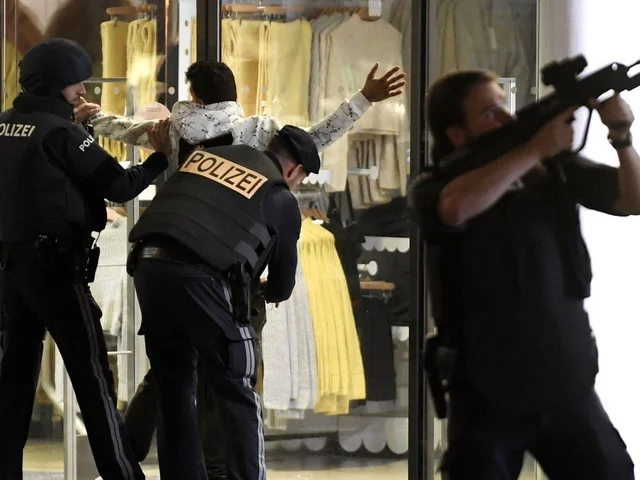The “peaceful crusaders” should appear
In 1219, a Catholic monk of Saint Francis of Assisi alone went to East to the Muslims. Before and after it, his fellow Italians and Europeans, in general, were moving in that direction to liberate the relics of the Lord from unbelievers. But they were doing it with fire and sword, to say the least, by leaving a non-ambiguous traces in the history, because in addition to the purely ideological reasons, there were many political and economic motives. Francis went to the Muslims purely for spiritual reasons, he was a “Crusader” literally by direct and “peaceful” meaning, because this alone, unarmed and scrawny man was trying to PERSUADE the Muslims to accept Christianity.
Is it naïve? Yes. Naturally, the followers of Islam told him, in modern language, “to get lost” (it’s good that they did not burn him), however, we remember Francis kindly and proudly, whereas the Crusaders – not so much. To the point, a few days ago, the militants of the “Islamic state” kidnapped and brutally killed 21 Egyptian Christians. One of the terrorists said, “Here is how we are going to treat all the crusaders.” Although his casualties were not Crusaders at all but poor “migrants” who had left for Libya to make their bread.
In Hugo’s “Les Misérables”, Bishop Myriel, with his deeds and words, convinces criminal Jean Valjean to take out the evil tormenting him. Was there a risk that Valjean would sell the silver candlesticks donated to him and would continue committing crimes? Certainly, there was, but if there is an option to save one out of ten, why isn’t it worth doing? In a French film, Jean Reno’s hero decides with his friends to step back from highway robbery and open a restaurant. At the end of the film, when his former friends with arms and amunition attack the restaurant to kill the “traitors”, the main character says, “We do not shoot and they will not shoot.” The bandits finally left and went away. Could they kill the newly opened owners of the restaurant? Certainly. But it would not make any sense.
Read also
To advance own convictions in the world, usually a blunt tool is taken to strike at the head of the person facing you. The latter, of course, is not convinced, and either obeys with a hatred in his heart, or he also takes a truncheon, moreover, a bigger one. But there were and are people in the European culture, who acted from the position of logic, negotiation, convincing each other and finding compromise. Certainly, they cannot stop the war in the Middle East or Ukraine. However, they are able and obligated to constantly remind that people are standing on both sides, and no political, religious or “imperialist” pretension equals even a single drop of human blood.
In domestic political matters, especially in a small and homogeneous country like Armenia, it is more than so. Simply, the tellers of these words are almost missing among us. Those who are called to do it have entered into this-or-that trenches and pour their teams’ bile on the public every day from the press clubs, Facebook, on the air and websites.
It would be ideal if our clergymen had implemented such a mission. But their high class in Armenia is perceived as a part of the government, while the ordinary priests – often as people making money on baptisms and funerals.
Every century develops a demand for people who oppose its primary aspirations. In our times, perhaps, there is a demand for “naive idealists.”
Aram ABRAHAMYAN






















































